Dystopia 2016: Dystopian Visions and 21st century life
February 28, 2016
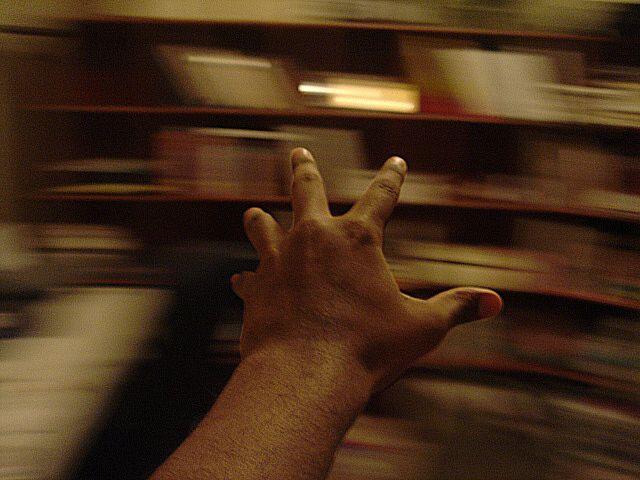
I had a dream, which was not all a dream
The bright sun was extinguish’d, and the stars
Did wander darkling in the eternal space,
Rayless, and pathless, and the icy earth
Swung blind and blackening in the moonless air;
…and all hearts
Were chilled into a selfish prayer for light.– Byron, “Darkness” (1816)
Mary Shelley, daughter of William Godwin and Mary Wollstonecraft and widely known as the brilliant young author behind “Frankenstein; or the modern prometheus”, is rightfully considered the progenitor, the mother if you will, of all Science Fiction. Her debut novel, published anonymously in 1818 to instant critical acclaim, can be seen as the sci-fi Prometheus as its events revolve around a deliberate scientific attempt by man to alter the world around him, to disastrous effect. A distinctly Faustian tale (man gains godly powers, man reaps a godly wrath), Shelley’s gothic novel has always struck chords with me as a lover of both modern sci-fi and the gothic. The daughter of a brilliant woman who died painfully giving birth to her, Shelley’s novel is awash with painful birth-imagery, metaphors of miscarriage, and even centres on the creatures relationship with its creator.
I am certainly not the first idolater of Mary Shelley and nor will I be the last. However, it is less commonly known that Shelley can be regarded as the promethean author of another type of fiction, one that is often found classified under the fickle and broad umbrella term that is ‘Science Fiction’; Dystopia.
“Frankenstein” was purportedly conceived at the Villa Diodati on the shores of Lake Geneva in 1816. Having been challenged to write a ghost-story by their host, the enigmatic Lord George Gordon Byron, the 18 year old Shelley then birthed an entire genre of fiction. But what does Mary Shelley’s stay at the Villa Diodati have to do with the disturbing 20th century dystopian visions of Orwell and Huxley, or the disengaging hyper-connected milieu of modern life? I will, dear reader, show thee.
The poem I chose to open this article with is penned by the very same 6th Baron Byron and was inspired at least in part by the eruption of Mount Tambora in Indonesia in 1815, a cataclysmic event which resulted in global climate fluctuations and led to 1816 being declared “the year without a summer”. It is also an early specimen of end-of-days literature and a stunning example of romantic Armageddon. With its authorship in mind, it is not a stretch to imagine that this apocalyptic sentiment was perhaps passed onto the talented young Shelley, who then went on to pen “The Last Man”, one of the earliest examples of dystopian sci-fi.
Shelley’s novel, published in 1826, imagines a world ravaged by plague. Containing many allegorical character equivalents of people in her immediate circle, including Percy Shelley and our mate Byron, the novel was poorly received upon its publication, and has only recently been deemed worthy of critical thought.
So dystopia as a literary concept can be traced back centuries prior to the advent of nuclear weapons, which transformed dystopia from a biblical scenario to a distinct likelihood. This, combined with the harrowing technological potential of a newly industrialised world, makes the 20th century a prime place to find the most chilling dystopian visions.
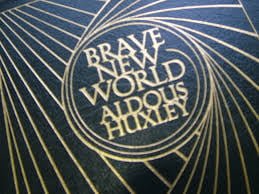 Written before the creation and use of nuclear weapons, but after the mass industrialisation of Henry Ford’s production line and the growing popularity of eugenics found across the western world in the early 20th century, Aldous Huxley’s “Brave New World” is a perfect example of the prescience of dystopia. Huxley, concerned at a perceived lack of morality and spirituality in the modern world and scared by the potential of selective eugenics, conceived a world where the “T” is analogous with the crucifix of Christianity and “Ford” is synonymous with ‘God’.
Written before the creation and use of nuclear weapons, but after the mass industrialisation of Henry Ford’s production line and the growing popularity of eugenics found across the western world in the early 20th century, Aldous Huxley’s “Brave New World” is a perfect example of the prescience of dystopia. Huxley, concerned at a perceived lack of morality and spirituality in the modern world and scared by the potential of selective eugenics, conceived a world where the “T” is analogous with the crucifix of Christianity and “Ford” is synonymous with ‘God’.
Huxley’s world, set six hundred odd years ‘AF’ (after Ford), is a clever inversion of a Utopia. By this I mean Huxley presents a world where humanity has no doubt flourished, guided and conditioned by the ten world controllers who survey and govern a population who think almost as one. Humanity no longer re-produces by the ‘traditional’ mammalian methods of copulation and gestation. Instead, a combination of production-line eugenics and IVF supplemented by conditioning results in a population with a hive-like identical way of thinking, who are separated into different castes based upon their predetermined genes; alphas, betas, gammas, deltas and epsilons. The people of Huxley’s world are conditioned to consume, “ending is better than mending!”, and have subsequently had all affinity with nature bred out of them because as everyone knows, “a love of nature keeps no factories busy”.
Due to reproductive fertility being eliminated and the advancement of the world under the controllers, humanity can live for pleasure. Indeed they are enslaved by it, held in thrall by recreational drug use (everyone is constantly popping Soma, “all the advantages of Christianity and alcohol, none of their defects”) and constant sexual frivolities, “Everybody belongs to everybody”. The denizens of Huxley’s dystopia thus lack what Huxley writing in 1931 would deem ‘sexual morality’. So much so that they look down upon and even ostracise those who dare stay committed to only one person.
It is, of course, impossible to consider dystopia in the 20th century without acknowledging the contributions of a teacher and erstwhile journalist named Eric Blair. In 1949 Eric Arthur Blair published a novel that has subsequently become synonymous with dystopia itself. Writing under his famous pen name, George Orwell’s “1984” is popular culture’s “go-to” dystopia. Orwell’s vision, inspired by the totalitarian regimes that emerged from the ashes of the second world war and delivered by his skill as a satirical writer and experience as a BBC propagandist, focuses on normal life under the boot-heel of Big Brother’s one-party rule of Airstrip One, a colony of Oceania formerly known as Great Britain.
The fact that thought police, doublespeak and thoughtcrime have entered everyday vernacular is testament to Orwell’s satirical genius. Though now, in the 21st century, they take on a horrible irony…
What truly lends greatness to Orwell and Huxley’s dystopia is their amplified resonance in today’s 21st century world. By this I mean; never has either dystopia been a more accurate prediction of the future world than they are today. Take Huxley’s human conditioning. Whilst we are still fully naturally born and raised in today’s world, free from the slogans and idioms of Huxley’s pavlovian production line, we are still bombarded and brainwashed by ubiquitous advertisements everywhere we look and listen. Whilst sat in my local pub recently, I realised I was being subliminally confronted by an electronic LCD screen whose only purpose was to display adverts amongst the seats and tables of the tavern. This invasive-pervasive method of advertising reminded me instantly of both author’s dystopian visions; a distinctly Orwellian method that has a Huxleisian effect. A child growing to adulthood in today’s world cannot escape these adverts be they on TV, Radio, the Internet, their own mobile phone, or pursuing them in real life on billboards, bus-stops and even inside that most sacrosanct of public venues: the pub. In modernity everywhere you look tells you how to live your life, what possessions you need to own and what you need to look like. Is this far from Huxley’s vision, where these edicts are imparted during the embryonic stage of development?
The methods may be different but the outcome is the same.
What would Huxley think of today’s rate of divorce, and generally loosening attitudes to marriage and sexual promiscuity? With western religion on the decline and consumerism at its height, Huxley’s prescient decision to revere Henry Ford (being the arch-consumerist) as a satirical deity becomes ever-more vindicated.
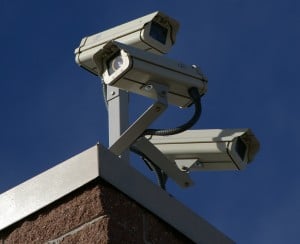 Orwell too was harrowingly close to home. What would Orwell think of today’s smartphones and their ability to eavesdrop and record every word spoken in their vicinity? Or the ability of governments to snoop on their citizens’ every internet search? What would both authors think of the ubiquity of adverts which subliminally demand their viewers (and here I’ll paraphrase Chuck Palahniuk’s neo-noir classic) buy stuff they don’t need with money they don’t have to impress people they don’t like?
Orwell too was harrowingly close to home. What would Orwell think of today’s smartphones and their ability to eavesdrop and record every word spoken in their vicinity? Or the ability of governments to snoop on their citizens’ every internet search? What would both authors think of the ubiquity of adverts which subliminally demand their viewers (and here I’ll paraphrase Chuck Palahniuk’s neo-noir classic) buy stuff they don’t need with money they don’t have to impress people they don’t like?
My guess is neither of them would be happy. They both saw this coming and they both tried to warn us.
Dystopia is therefore, in a modern age where we really have attained the technological ability to wipe ourselves out, a warning from the past about the horrifying potential of our future. Dystopia as a concept has taken on a new significance since Science Fiction was first conceived on the shores of Lake Geneva. Dystopia is the budgie in the mine, a litmus test if you will, to hold up against our lives today so we can ask ourselves “what have we become?”
In an age where the rise of and response to global terrorism is impacting upon both free speech and free thought, it is important we keep thoughts of Big Brother at the back of our minds. In an age of media-conglomerates owned by the few broadcasting to the many, it is prudent to think of The Ministry of Truth and to question things we hear. And in an age of smartphones, videogames and social media it becomes important to disconnect, to focus on actual human relationships and to appreciate the natural world to avoid becoming drones in this Brave New World.
The choice for mankind lies between freedom and happiness and for the great bulk of mankind, happiness is better…” – George Orwell, 1984
Filed under: Written & Spoken Word
Tagged with: 1984, Aldous Huxley, Brave New World, dystopia, Frankenstein, George Orwell, Mary Shelley, science fiction
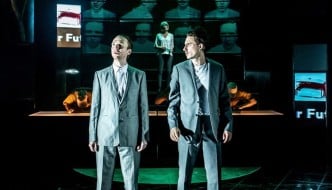
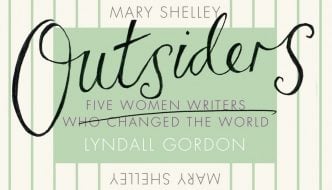

Comments